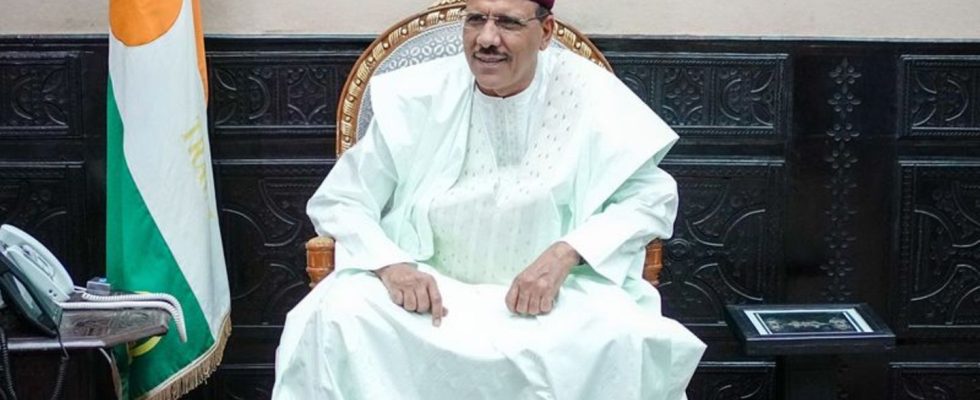West Africa
Big concerns about ousted President Bazoum in Niger
Mohamed Bazoum, 63, his wife and son have been held at their residence for 16 days. photo
© Kay Nietfeld/dpa
For more than two weeks, their own Garden has held Bazoum and his family. Their living conditions worsen. The putschists are now openly holding the 63-year-old hostage.
As tensions mount after the military coup in Niger, concerns about the ousted president are growing Mohamed Bazoum. The 63-year-old has been held at his residence for 16 days. “After he was deprived of electricity and telephone for several days, the putschists are now depriving him of his family doctor, among other things. He is even denied access to food,” Bazoum’s deputy chief of cabinet Moussa Oumarou told the German Press Agency.
His wife and son are also being held. According to Oumarou, the putschists arrested around 100 members of the ousted government, including the son of former President Mahamadou Issoufou.
reports of death threats
The junta is said to have threatened a US diplomat that Bazoum would be killed in the event of a military intervention, according to the New York Times, based on a report by the US news agency Associated Press. The threat sparked global outrage and further calls for Bazoum’s release.
The human rights organization Human Rights Watch announced on Friday that employees spoke to Bazoum and several confidants. “I have had no electricity since August 2nd and no human contact since August 4th. I am not allowed to receive my family members (or) my friends who have brought us food and other goods,” Bazoum was quoted as saying.
Without electricity, they are forced to eat dry food. “My son is sick, has a serious heart condition and needs to see a doctor,” he said. “They refuse to give him medical treatment.” Bazoum’s doctor and lawyer confirmed to HRW that they have had no contact with Bazoum or his family since the coup.
daughter in France
Bazoum’s daughter, who was in France at the time of the coup, told the British newspaper The Guardian that she was in almost daily telephone contact with her father, mother and brother. “My family’s situation is very difficult right now,” she said. They have no running water and are still living on stocks of noodles and rice, but the gas for their stoves will soon run out. Without electricity, they lived in the dark and in the heat.
On July 26, Niger’s Presidential Guard under General Abdourahamane detained Tiani Bazoum at his residence after observers said Bazoum wanted to replace Tiani at the head of the elite unit. The other branches of the armed forces also joined the coup, proclaiming “the end of the regime” and dissolving all constitutional institutions. Tiani took power. The West African community of states Ecowas is threatening military action if the putschists do not release Bazoum and restore constitutional order.
In Niger, where it is currently the rainy season, temperatures are over 30 degrees Celsius during the day and over 23 degrees Celsius at night, with high humidity. Neighboring Nigeria cut off electricity supplies to Niger, on which the country was largely dependent, as part of the sanctions imposed after the coup. A large part of the population now has no electricity. Food prices in the country have risen drastically in the past two weeks. More than 40 percent of Niger’s approximately 26 million inhabitants live in extreme poverty.

